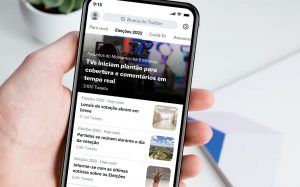The first monitoring of the attacks against journalists during the Brazilian election campaign through the Latin America office of Reporters Without Borders revealed the extent of the aggression against the media in Brazil on social media.
In the second week of the campaign, 2,749,125 tweets containing terms related to attacks on the press were recorded.
During the same period, 140 hashtags that insulted journalism and the media were identified, with a total of 937,870 tweets where at least one of them was mentioned. The hashtag that had the biggest resonance was #GloboLixo, which was quoted 377,007 times.
window.uolads.push({ id: "banner-300x250-3-area" });
The “explosion” of attacks on journalists in the election campaign
The report emphasizes that the second week of the election campaign was marked by an explosion of insults against journalists and the media on social networks.
“Interviews with presidential candidates at the Journal Nacional have mobilized hundreds of thousands of attacks against TV Globo.
An offensive speech by President Jair Bolsonaro against journalist Vera Magalhães during the first televised debate with the candidates triggered a wave of insults against the presenter.
Reporters Without Borders (RSF) warns of a scenario of growing hostility and de-legitimization of the press.
Overall engagement on the accounts of the 120 journalists watched in the survey rose from nearly 600,000 tweets the previous week to nearly 1.5 million this second week of the official election campaign.
And the attacks grew in turn. The journalists most attacked this week were Miriam Leitão, Milton Neves, Vera Magalhães, Andreia Sadi, Renata Vasconcellos, Eliane Cantanhêde, Ricardo Noblat, William Bonner, Reinaldo Azevedo, Bernardo Mello Franco and Marina Dias.
It was also possible to identify the accounts that used the most offensive hashtags against journalists and media on Twitter. The top five were @marinaaddarosa @francoosito1, @cesarmo70820605, @mia41278514 and @romerossouza.
According to the researchers, there are similarities in the content of the accounts’ posts, and they openly declare their support for President Jair Bolsonaro through their profile picture, retweets, and biography statements. Image and Cyber Culture Studies Laboratory (Labic) from the Federal University of Espírito Santo (UFES), RSF’s monitoring partner.
‘Goals of the Week’
Highlights of the week were interviews with the presidential candidates on Rede Globo’s Jornal Nacional program from August 22-26 and the debate with the candidates broadcast by Grupo Bandeirantes and co-organized with TV Cultura, UOL and Folha de São Paulo. August 28.
The hashtag #GloboLixo reached 5,473 mentions in the first week. Another 377,000 citations were made this second week—an almost 70-fold increase, the researchers said.
Among the most shared hashtags of this period are those mentioning the hosts of Jornal Nacional, William Bonner and Renata Vasconcellos, who interviewed presidential candidates such as #BonnerDitador (481), #BonnerLixo (292), #RenataMentirosa (281). ) stands out. ), #Bonnermentiroso (217), #BonnerIdiota(179), #RenataVasconcelosMentirosa (165) and #BonnerVaiTomarNoCool (141).

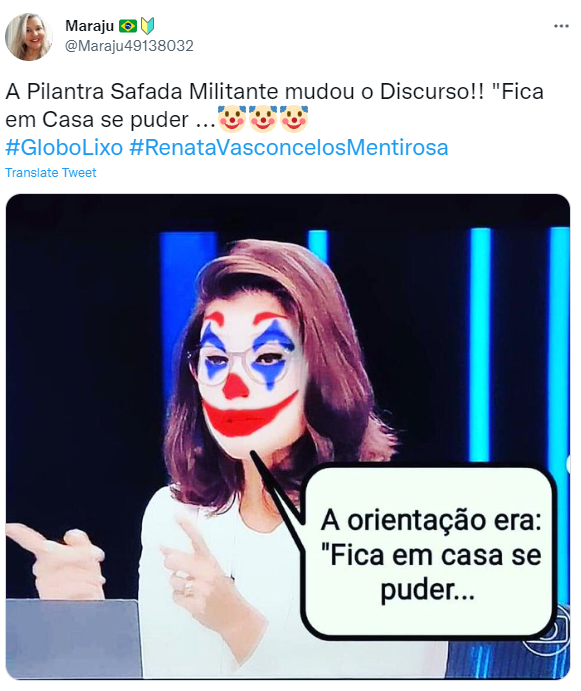
Journalist Vera Magalhães, the main target of the attacks
The most notable event, however, was the wave of attacks on journalist Vera Magalhães after she participated in the debate between the presidential candidates on TV Bandeirantes.
President and re-election candidate Jair Bolsonaro reacted aggressively to one of his questions:
“I think you’re sleeping thinking about me. You cannot take sides in such an argument by making false accusations against me. You are a disgrace to Brazilian journalism”
The speech immediately triggered a series of attacks against the journalist. The hashtag #VeraVergonhadoJornalismo was shared 10,273 times in just a few hours.
The phrase “Verba Magalhães” in TV Cultura, which refers to misinformation about the journalist’s salary, was quoted 10,816 times on Twitter. In total, the posts circulated 69,659,701 times in the feeds of the platform’s users.
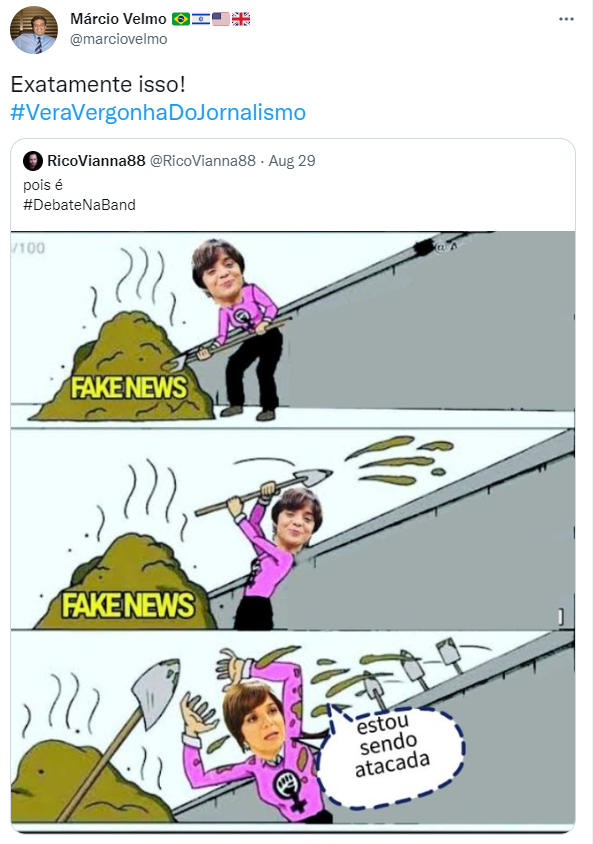
“By analyzing other terms and references commonly used in attacks on journalists, a pattern of aggression was identified that expressed inferences and misinformation about professional ethics in misogynistic manifestations,” the report says.
The synchronization of the attack on Vera Magalhães also enabled the terms “verba Magalhães” and “VeraVergonhadoJornalismo” to reach Trending Topics on Twitter on the day of the discussion.
To visualize the coordinated attack action based on President Bolsonaro’s speech, the graph created by the researchers reveals the most popular users (who get more retweets/RTs) attacking the journalist with the hashtag and phrase (higher scores).
The three users who had the most publicity promoting the attacks were Bolsonarista influencer Leandro Ruschel, Jovem Pan commentator and strong supporter of President Bolsonaro Paulo Figueiredo Filho, and the networks Monica Marinho, journalist and supporter of President Bolsonaro.
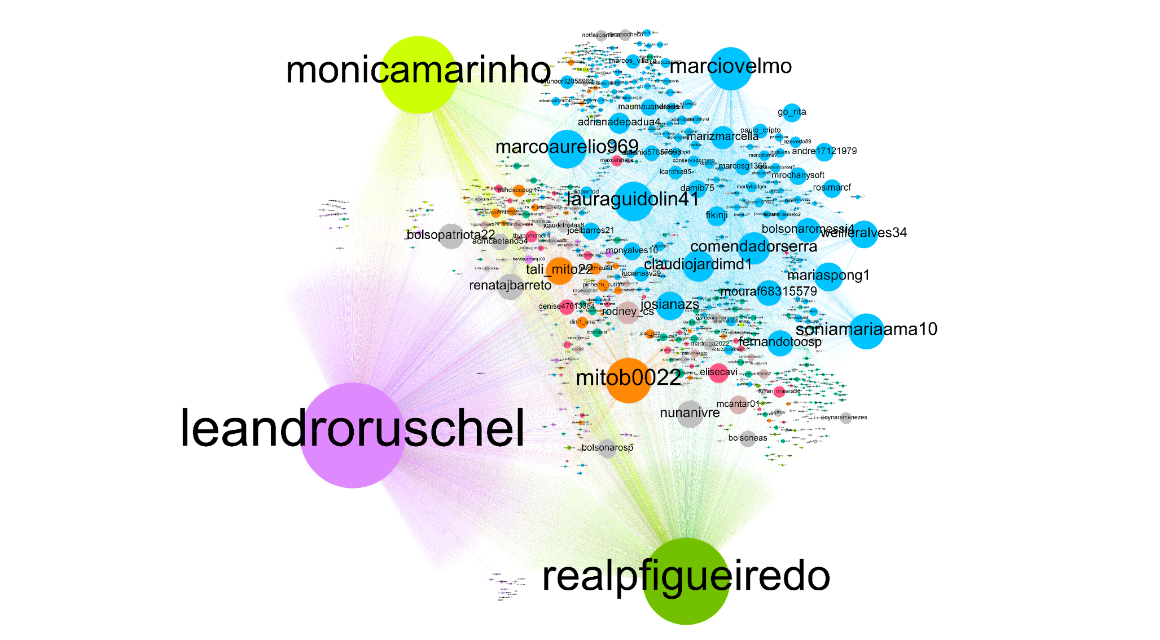
“The Vera Magalhães case reveals several elements unique to online attacks on journalists,” the report says.
“Misogynistic aggression, misinformation, illegitimacy of your work and professional ethics, coordination between profiles and statements by public authorities.
When this mechanism reproduces in large numbers and in short time intervals until it is exhausted, we face a serious threat of press freedom’s attempt to intimidate and embarrass the journalist.
Public authorities and attacks on networks and networks
One of the elements demonstrated by the coordinated attack on Vera Magalhães and the attacks on Jornal Nacional’s servers is the link between the public speeches of the authorities and their repercussions with new attacks on social networks by associated profiles.
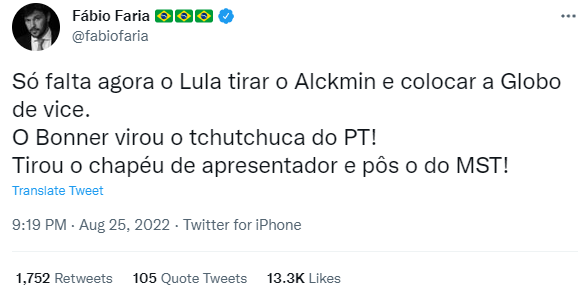
For Reporters Without Borders, “This system of mass attacks on journalists on social networks during the campaign often follows the path opened by high-profile profiles, often using the visibility of communication platforms to continue their attacks by public authorities. in other areas of the Republic”.
The report states that the posts of Communications Minister Fábio Faria exemplify the mechanism.
“Each of these posts has reached nearly a million profiles and is in addition to President Bolsonaro’s hostile stance in his interview with Jornal Nacional.
Former Environment Minister and current federal deputy Ricardo Salles candidate is an example of this.”
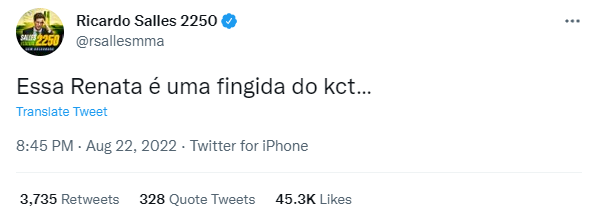
Monitoring the attacks on journalists will continue until 30 October, when the second round of the election campaign ends.
A total of 120 journalists and commentators are monitored daily in partnership with the United States, in addition to profiles of public officials and election candidates. Image and Cyber Culture Studies Laboratory (Labic) at the Federal University of Espírito Santo (UFES), a leading research center specializing in social network analysis and digital trends.
Also Read | Reporters Without Borders will monitor the attacks on the press during the election campaign in Brazil
source: Noticias
